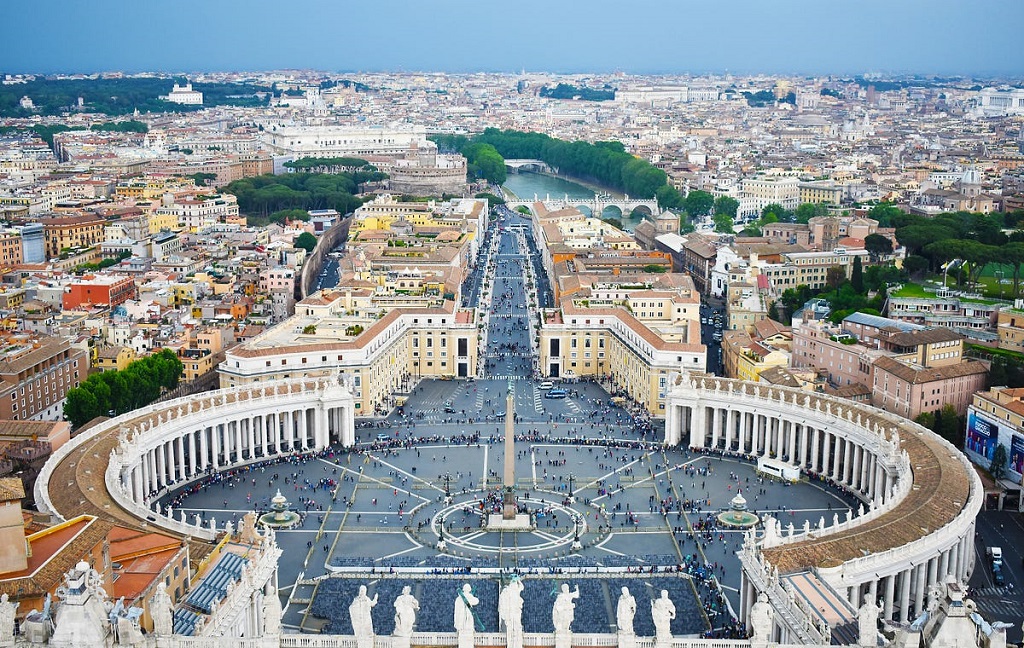Have you ever wondered which country holds the title for being the shortest? In this article, we will delve into this intriguing topic and explore the fascinating world of compact nations. From their unique geographical characteristics to the cultural richness they offer, these diminutive countries have much to offer despite their small size. So, let’s embark on this journey and discover the answer to the question, “What is the shortest country?”
The Charm of Compactness
When we talk about the shortest country, we are referring to the nation with the smallest land area. These countries might be tiny in terms of size, but they often possess distinct identities and captivating stories. Their compactness grants them unique advantages, such as close-knit communities, efficient governance, and concentrated cultural heritage. Dive deeper into the average height Italy.
The Winner: Vatican City
In the realm of small nations, Vatican City takes the crown for being the shortest country. Located within the city of Rome, Italy, Vatican City is an independent city-state and the spiritual headquarters of the Roman Catholic Church. With an area of just 0.44 square kilometers (0.17 square miles), it holds the distinction of being the smallest internationally recognized independent state in the world.
Despite its diminutive size, Vatican City carries immense significance due to its historical and religious importance. It is home to iconic landmarks like St. Peter’s Basilica and the Sistine Chapel, which attract millions of visitors each year. This tiny country serves as a symbol of faith and heritage, encapsulating centuries of history within its borders.
Exploring Other Compact Nations
While Vatican City reigns supreme as the shortest country, there are several other noteworthy contenders in the world of compact nations. Let’s take a closer look at some of them:
Monaco
Nestled on the French Riviera, Monaco covers an area of approximately 2.02 square kilometers (0.78 square miles). Known for its luxurious lifestyle and glamorous casinos, Monaco captivates visitors with its breathtaking scenery and opulent charm. Despite its small size, this microstate has a vibrant cultural scene and hosts prestigious events like the Monaco Grand Prix.
Nauru
Situated in the Central Pacific, Nauru is the third smallest country by land area, spanning around 21 square kilometers (8.1 square miles). This island nation boasts stunning coastal landscapes and rich marine biodiversity. Additionally, Nauru is renowned for its phosphate reserves, which have played a significant role in its economy.
Tuvalu
Located in the Pacific Ocean, Tuvalu consists of nine coral atolls and covers an area of approximately 26 square kilometers (10 square miles). The country’s pristine beaches, crystal-clear waters, and warm hospitality make it a paradise for nature enthusiasts and intrepid travelers. As one of the smallest nations in the world, Tuvalu faces unique challenges due to rising sea levels and the impact of climate change.
Conclusion
In the realm of compact nations, size is not an obstacle to greatness. Vatican City may hold the title for being the shortest country, but it is far from being short on cultural, historical, and religious significance. Meanwhile, Monaco, Nauru, and Tuvalu shine as examples of how small countries can offer remarkable experiences to visitors and leave a lasting impression.
So, whether you dream of exploring the grandeur of Vatican City or seeking the allure of Monaco’s luxury, remember that greatness can be found in the tiniest corners of the world. Just as in a good business relationship, where trust, communication, and shared values are paramount, these compact nations exemplify how significance knows no bounds. Embrace the diversity and richness that Vatican City, Monaco, and other small countries offer, and embark on an adventure that will expand your horizons and understanding of our global tapestry. Let their stories inspire you to appreciate the beauty of uniqueness and the power of making a lasting impact, no matter the size.
FAQs (Frequently Asked Questions)
Q: Are there any advantages to being a small country?
A: Yes, small countries often benefit from close-knit communities, efficient governance, and concentrated cultural heritage.
Q: What makes Vatican City significant?
A: Vatican City is significant due to its historical and religious importance. It is the spiritual headquarters of the Roman Catholic Church and houses iconic landmarks like St. Peter’s Basilica and the Sistine Chapel.
Q: What is the total area of Monaco?
A: Monaco covers an area of approximately 2.02 square kilometers (0.78 square miles).
Q: What are the main challenges faced by Tuvalu?
A: Tuvalu faces challenges such as rising sea levels and the impact of climate change due to its low-lying geography.
Q: Can small countries offer unique experiences to visitors?
A: Absolutely! Despite their size, small countries like Monaco, Nauru, and Tuvalu offer captivating experiences, stunning landscapes, and vibrant cultures.


